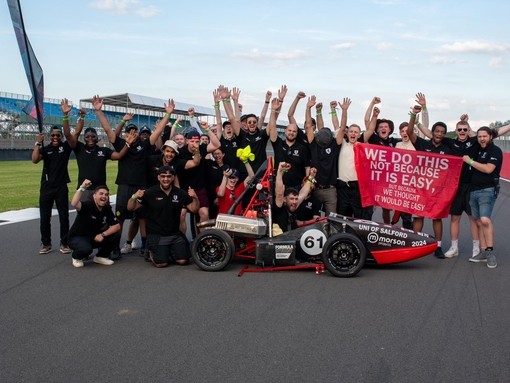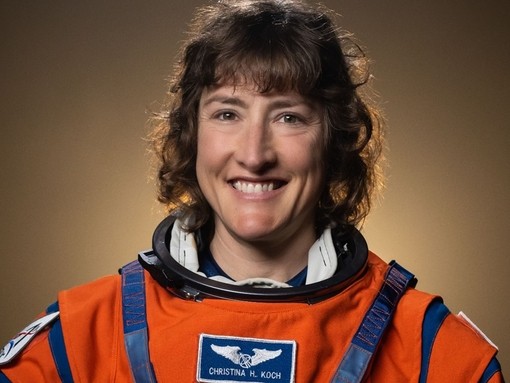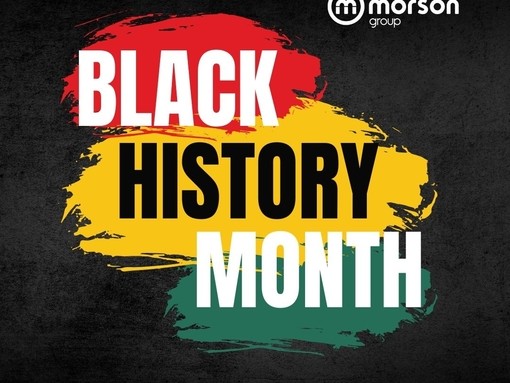
Promoting Women in STEM | Morson sponsors University of Salford Students to attend key gender balance conference
In support of our partnership with the University of Salford, Morson sponsored Anisah K and Sarah McCormick to attend the Promoting Women in STEM conference before Christmas.
Sarah studies MSc Human Resource Management at the University of Salford, read about her experience below:
I was fortunate to be invited to a recent conference on Promoting Women in STEM organised by Inside Government, with top draw keynote speakers from the worlds of education, industry and professional organisations. As well as an opportunity to network, the event highlighted the key themes affecting women in STEM. A consistent message came through of the role that we can all play in encouraging and supporting women considering or already working in the sector and the need to challenge behaviour that places barriers in front of the great opportunities available.
I am not a STEM student but having worked in the STEM sectors for nearly 20 years I have noted the gradual but encouraging increase in Women in STEM areas. The figures are still concerning however, as the first speaker Helen Wollaston, Chief Executive of the WISE Campaign, highlighted in her presentation on the gender disparity in vocational training. Only 7.5% of successful STEM apprentices are female but WISE Campaign initiatives such as the Apprentice Toolkit and People like me are clearly making a difference.
The next speaker Kirsten Bodley Chief Exec of Women’s Engineering Society highlighted why gender parity in the STEM sector, especially engineering, is so important. I was surprised by the huge disparity between the supply of qualified apprentices entering female dominated fields such Health and Social care and Beauty and the jobs available to them. There are only 18k jobs available to the 100k+ graduating apprentices, a virtual reverse of the situation facing the often better paid Construction and Engineering Apprentices. It clearly in the interests not only of the sector but of individuals themselves to explore STEM career.
Kirsten also provided some very practical advice that companies and educational institutions can take to improve gender balance. By re-evaluating the qualifications needed for a course UCL were able to increase the number of female participants from 21% to 29%. This is getting close to the 30% target of women in Engineering that WES has set for 2030.
As a MSc HRM student a key message for me came from Nike Folayan, Chairperson for the Association for Black and Minority Ethnic Engineers who highlighted that it is not the role of HR alone to tackle diversity and inclusion within an organisation, it has to come from leadership. This was evident from the case studies presented throughout the day from companies such as Ofcom and Siemens as well as educational bodies such as Solihull College. In each case change and progress required people from across the organisation stepping up, volunteering, modelling and leading. Cases such as a teacher giving up their Easter holiday to go on work experience so that they have a better understanding of industry to advise their students or STEM ambassadors challenging stereotypes in the classroom demonstrate the kind of leadership needed.
Everyone has a role to play and it was encouraging to spend a chilly wet day in Manchester with a room full of people from across the sector who are working hard to encourage women to realise their potential within STEM. Thank you, University of Salford Maker Space and Morson, for the opportunity to attend Promoting Women in STEM.
Click here to read more about the partnership between the University of Salford and Morson or join our Women in Industry LinkedIn group to share knowledge, inspire change and shout about success.














